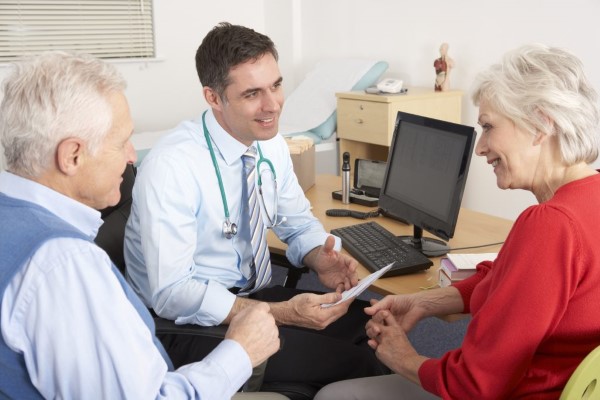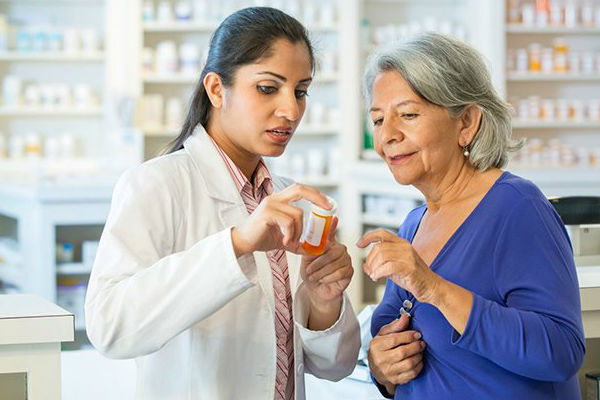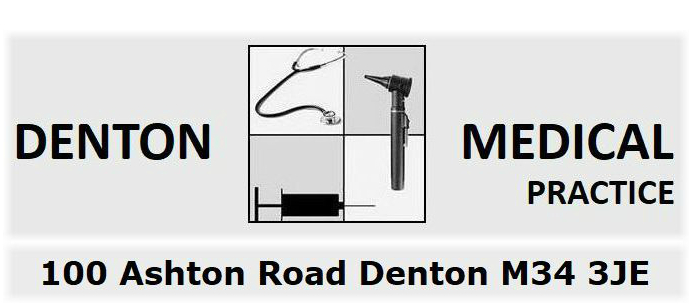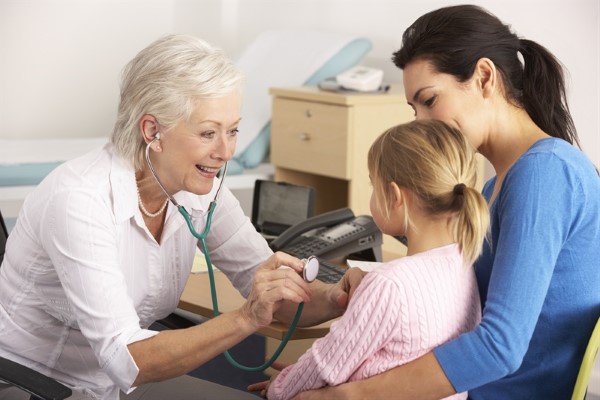Role within General Practice
GP Partners
We as GPs at Denton Medical Practice are independent contractors running the business in a 5 doctor partnership.

As with all other independent NHS contractors, GPs are responsible for running the business affairs of the practice, providing adequate premises and infrastructure to provide safe patient services and employ and train practice staff.
Over recent years there has been a steady increase in the number of large partnerships resulting in the consolidation and growth of a number of GP patient lists.
In turn, the traditional staff roles have expanded and developed to meet the needs of the practice.
The GP partners are self-employed independent contractors. The partners are essentially shareholders or owners of the practice and take an active role in the strategic development of the practice as an independent business.
Outlined below is the staffing arrangements for a typical GP practice like Denton Medical Practice. The roles and the number of staff involved in a GP practice can vary according to the size of the practice.
Practice Manager
The role of practice manager may be split across the two roles of a business manager and an administrative manager.

Business manager
She is often responsible for providing financial and business advice to the partners for the development and implementation of the practice coroporate strategy.
Administrative manager
Her role can include a wide variety of functions depending on the staffing structure of the practice. This role will be responsible for the management of practice staff, patient liaison and daily operations within the practice. They are usually the first point of contact relating to the management of the GP contract and QOF, prescription management and IT functionality for the practice.
IT Manager
Practices now have a dedicated person with IT manager role to oversee the daily management of the IT infrastructure and functionality within practices.

Some of the IT development programmes within the practice include:
- Choose and Book (C&B)
- GP to GP transfer of patients' records (GP2GP)
- Electronic Prescription Service (EPS)
- Summary Care Record (SCR)
The GP IT systems offer a range of functions in addition to traditional appointment scheduling, clinical records and prescribing.
GPs can use their systems to review QOF data, provide patient recall functions, run audit reports, manage referrals, test requests, incorporate pathology test reports and in some cases analyse trends within the practice regarding referral and prescribing costs.
Practice Nurse
Practice nurses have become significantly more skilled over recent years and are now providing services to patients that were previously delivered by GPs.
This is as a result of the training and development initiatives within the nursing profession, leading to the creation of roles such as nurse practitioners and independent nurse prescribers.
Much of their work involves managing the care of patients with long-term conditions and running a wide range of extended service clinics in the practice including:
- monitoring of long-term conditions such as asthma, diabetes and hypertension
- cytology services
- family planning
- smoking cessation
- childhood and travel vaccinations.

Healthcare Assistants (HCA)
The role of the HCA can vary depending on the number of services provided by practice nurses.
They often provide assistance to nurses, as well as undertaking routine tasks such as phlebotomy, chaperoning and taking blood pressure and weight measurements for long-term conditions clinics.
Practice Pharmacist
Majority of practices will rely on the expertise of CCG medicines management pharmacists.
The practice pharmacist may also have a prescribing qualification which adds significant scope and flexibility to their role.
The practice pharmacist will undertake many duties including:
- preparing practice formulary
- NICE guidance implementation within the practice
- repeat prescription review
- clinical audits and associated recommendations
- clinical switching programmes
- patient medication review
- clinics for long-term conditions.

Administration Staff
The administration staff provide a range of services in the practice including one or all of the following:
- co-ordinating the flow of patients
- managing patient appointments and telephone calls
- managing correspondence both incoming and outgoing
- preparing prescriptions for review and signing
- managing the clinical review recall system of patients with chronic diseases for annual clinical review.
- data input
- typing letters
The receptionists are 'front line' staff and make sure you get the help needed with booking appointments.
We have a full complement of helpful reception staff to help you get the most out of our services.

Structures
The operational aspects of a GP’s role are not limited to running traditional practice surgeries.
Since 1 April 2013 all practices have been required to be a member of a CCG, responsible for commissioning hospital, community and mental health services.
Additionally, many GPs are now actively involved in related activities outside of the practice.
These include helping to develop local healthcare policy, clinical leadership roles for external and NHS organisations such as NHS England, CCGs and Local Authorities or as members of the Local Medical Committee (LMC).
Some GPs pursue extended clinical opportunities and become involved in hospital work, for example as a clinical assistant, or become involved in educational activities and developments.
.jpg)
Clinical commissioning groups (CCGs)
Since 1 April 2013, all GP practices in England are legally required to be a member of a CCG. CCGs are GP-led organisations responsible for commissioning services including emergency care, community and mental health and maternity care.
.jpg)
There are 211 CCGs, commissioning services for an average of approximately 226,000 people each. CCGs are accountable to NHS England and its area teams, and supported by commissioning support services/units (CSSs/CSUs).
In addition to GPs, each CCG governing body must include at least one registered nurse and one secondary care doctor. They are responsible for around 60 per cent of the NHS budget.
As part of the CCG constitutions, all GP practices are required to be a member of their CCG. However, not every GP will have a lead role within their CCG.
Some of the functions that involve GPs
- patient consultations in the surgery/home visits/telephone
- managing repeat prescriptions
- specialist clinics, for example respiratory, diabetes, cardiovascular disease
- managing incoming and outgoing correspondence and related actions, for example patient referrals and following up pathology test results
- practice administrative functions - these are usually split among the team of GPs, for example IT lead, QOF lead
- leadership and participation in CCGs
- training GP trainees - many practices are training practices
- clinical sessions in primary or secondary care settings as GPwSI or clinical assistant roles
- external or non-NHS related work, for example prison care, private medical officer, medicolegal work, employment tribunals and high-cose drugs appeal tribunals.

